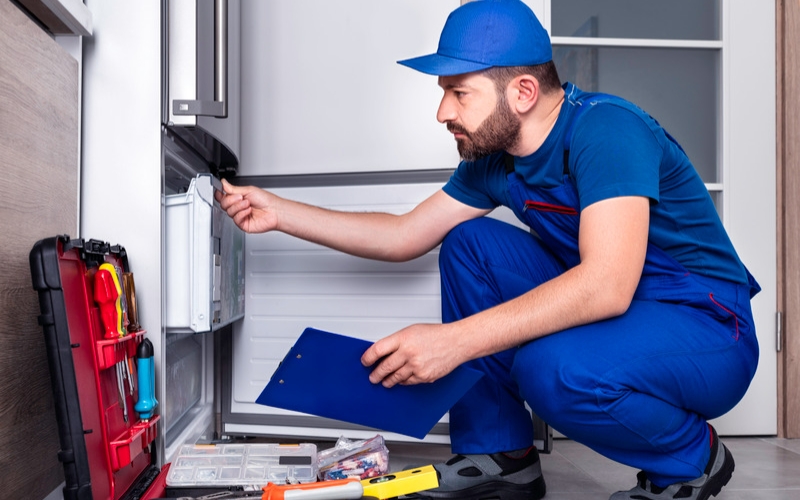Last Updated on March 18, 2024 by Kelvin Nielsen
If you’re a renter in Florida, it’s important to know your rights when it comes to repairs. Both landlords and tenants have certain responsibilities outlined in Florida statutes and landlord-tenant law.
Understanding these responsibilities can help you navigate any repair issues that may arise during your tenancy.
As a tenant, you have a responsibility to keep your rental unit clean and safe. However, it’s your landlord’s responsibility to make necessary repairs to keep the unit habitable. This includes repairs to plumbing, electrical systems, heating and air conditioning, and other essential systems.
If your landlord fails to make these repairs, you may have legal actions and protections available to you.
Related Post: Free Legal Advice for Tenants in Florida: Know Your Rights!
Understanding Repair Responsibilities
As a renter in Florida, understanding your repair responsibilities is crucial to ensuring a safe and habitable living environment. This section will outline the obligations of both landlords and tenants when it comes to maintenance and repairs.
Landlord’s Obligations for Maintenance and Repairs
Under Florida law, landlords are required to maintain their rental properties in good repair and adhere to all safety standards and health codes. This includes ensuring that all appliances, plumbing, electrical, heat, and hot water are in working order.
Additionally, landlords are responsible for pest control, garbage removal, and maintaining sanitary conditions.
If your rental property is in need of repairs, it is your landlord’s responsibility to address the issue in a timely manner. Failure to do so could result in legal action or termination of your rental agreement.
However, landlords do have the right to enter the property to make repairs, as long as they provide reasonable notice and do not harass or disturb tenants.
Tenant’s Role and Maintenance Duties
As a tenant, you also have a responsibility to maintain the property and report any damages or repairs needed to your landlord in a timely manner. This includes keeping the property clean and in good condition, and promptly reporting any damage caused by you or your guests.
Tenants are responsible for minor repairs and maintenance tasks, such as changing light bulbs and air filters, and keeping drains clear of debris. However, if a repair requires professional assistance or is the result of normal wear and tear, it is the landlord’s responsibility to address the issue.
Remember, both landlords and tenants have a role to play in maintaining a safe and habitable living environment. By understanding your repair responsibilities, you can ensure that your rental property remains in good condition and avoid any legal disputes.
Related Posts:
- What Are My Legal Rights as a Tenant in Florida?
- Florida Rental Laws: Month-to-Month
- Florida Landlord Right to Show Property
- Landlord Harassment in Florida
Legal Actions and Protections
Procedures for Requesting Repairs
As a tenant in Florida, you have the legal right to request repairs from your landlord. You must provide written notice of the needed repairs to your landlord and give them seven days to make the necessary repairs.
If your landlord fails to repair the issue, you have the option to withhold rent or reduce services until the repairs are made. You should always keep a copy of the written notice for your records.
Tenant’s Rights in Case of Noncompliance
If your landlord fails to make the necessary repairs after receiving written notice, you have the legal right to pursue your rights and remedies. You can file a complaint with the local housing authority or take legal action in small claims court.
Additionally, you have the right to terminate your lease agreement if the landlord fails to provide a habitable living space.
Protection Against Landlord Retaliation
Florida law protects tenants from landlord retaliation for pursuing their legal rights. If your landlord threatens eviction or raises your rent in response to your request for repairs, you have legal recourse.
You can file a complaint with the local housing authority or take legal action in small claims court. Additionally, you have the right to organize with other tenants and pursue legal action as a group.
Frequently Asked Questions

What steps should a tenant take if the air conditioning breaks and the landlord is unresponsive in Florida?
If your landlord is unresponsive and your air conditioning breaks, you should notify them in writing about the issue. If they still do not respond, you can contact a local code enforcement agency or hire a licensed contractor to fix the issue and deduct the cost from your rent. Keep all documentation and receipts for proof.
Under what circumstances can a tenant legally withhold rent in Florida due to repair issues?
Florida law allows tenants to withhold rent if the landlord fails to make necessary repairs that affect the health and safety of the tenant. However, the tenant must follow specific procedures, such as providing written notice and giving the landlord a reasonable amount of time to make the repairs.
What is the maximum time a landlord has to address and fix repair issues in Florida?
Florida law requires landlords to make repairs within a reasonable amount of time. However, there is no specific timeline provided. It depends on the severity of the issue and the availability of resources. If the landlord fails to make repairs within a reasonable time, the tenant may have legal options.
Are tenants in Florida allowed to perform repairs on their own and deduct the costs from rent?
Yes, tenants in Florida are allowed to hire licensed contractors to make necessary repairs and deduct the cost from their rent. However, the tenant must follow specific procedures, such as providing written notice and giving the landlord a reasonable amount of time to make the repairs.
What are the specific rights of month-to-month tenants in Florida when it comes to repairs?
Month-to-month tenants in Florida have the same rights as tenants with a lease when it comes to repairs. The landlord is responsible for maintaining the property and making necessary repairs. If the landlord fails to do so, the tenant may have legal options.
How does Florida law define a landlord’s entry rights for making repairs?
Florida law allows a landlord to enter a tenant’s unit to make necessary repairs. However, the landlord must provide reasonable notice and enter at a reasonable time. If the tenant denies access, the landlord may have legal options.
Disclosure: The content herein isn’t a substitute for advice from a professional attorney. It’s only meant to serve educational purposes. If you have a specific question, kindly seek expert attorney services.
Sources: FL Statutes Chapter 83 Part II, Warranty of Habitability in Florida, Florida Renters Rights Guide,

Amanda Rose is a seasoned landlord with 13+ years of expertise in overseeing diverse properties. Her adept management spans single and family homes, along with multi-family apartments and condos, across Wyoming and South Dakota. Her commitment and proficiency have cemented her status as a thriving property management professional.
She is a member of the following organizations: Wyoming Landlord’s Association, National Association of Residential Property Managers (NARPM), Wyoming Apartment Association, South Dakota Multi-Housing Association (SDMHA), and South Dakota Landlord Association (SDLA).


![Renters Rights For Repairs [All 50 US States] Renters' rights for repairs](https://landlordtenantresource.com/wp-content/uploads/2025/03/rights-200x100.jpg)




